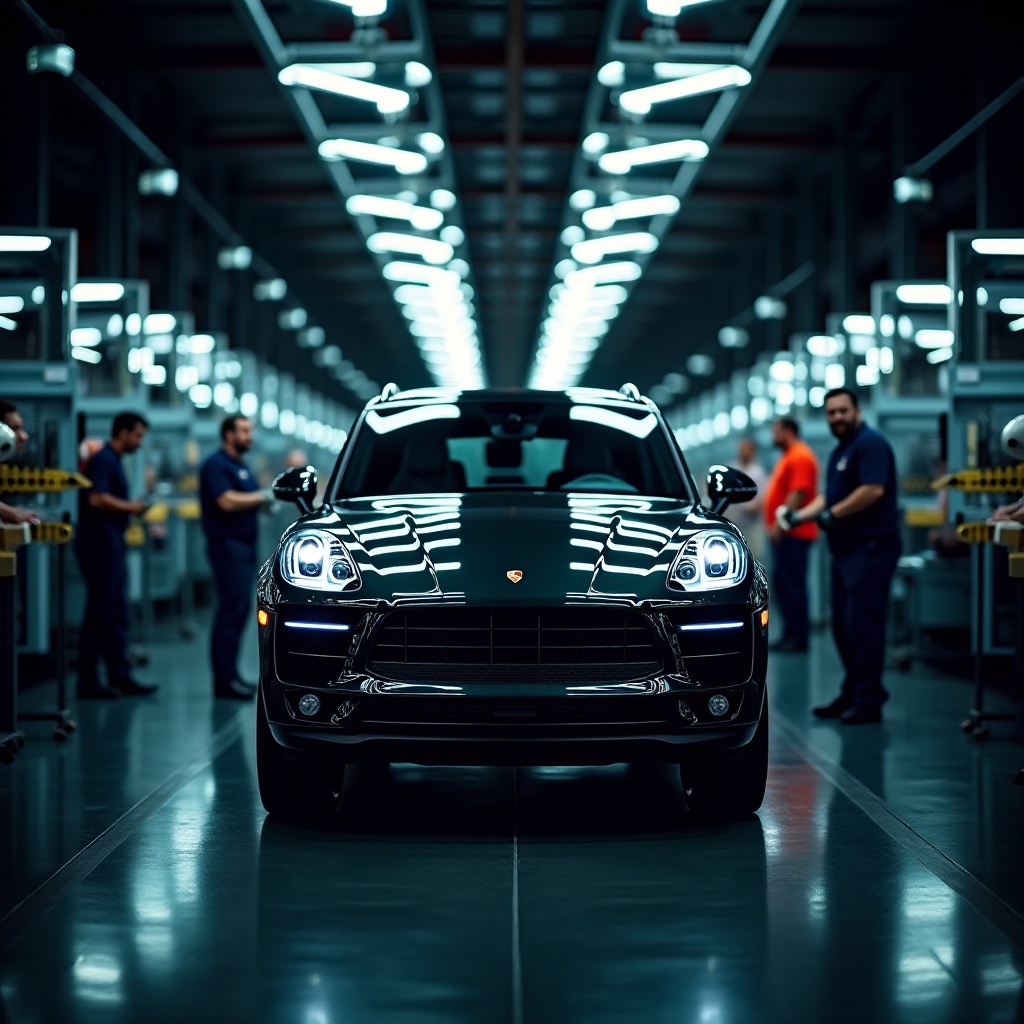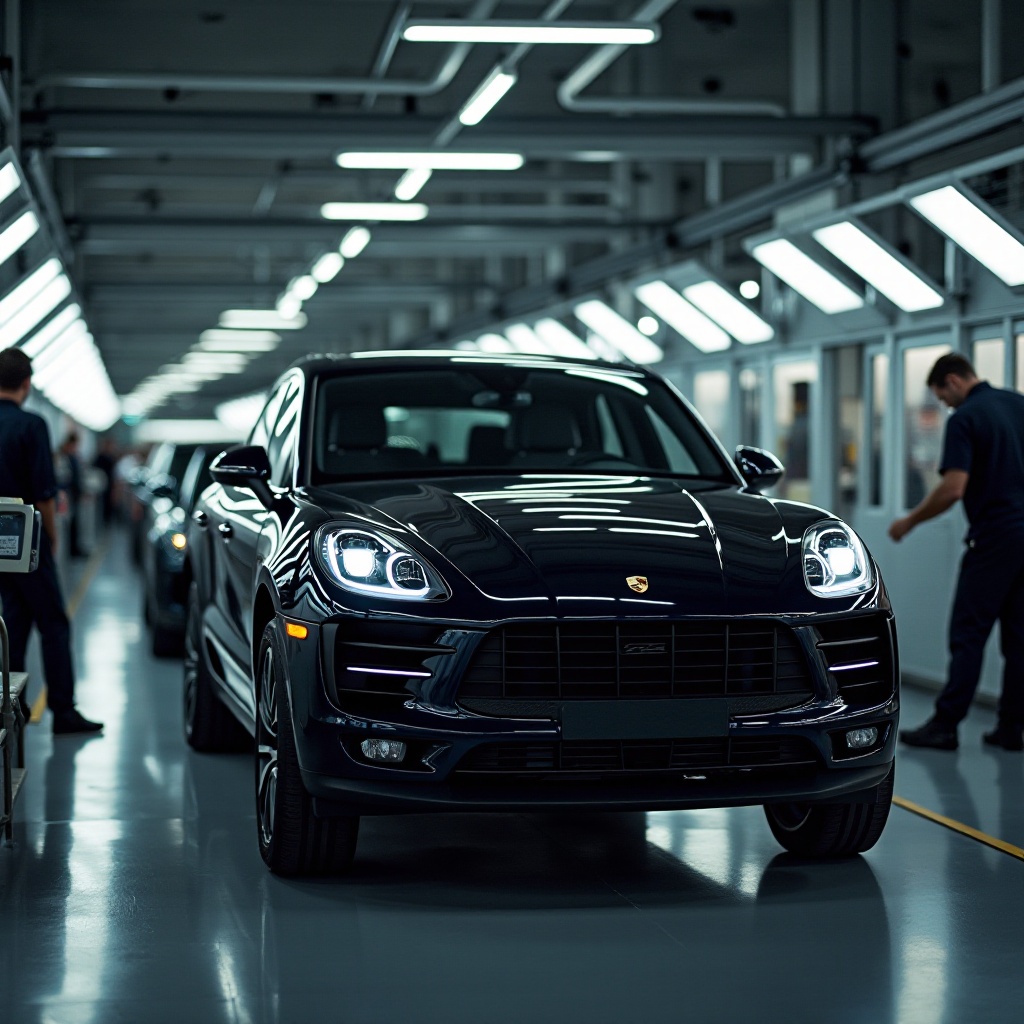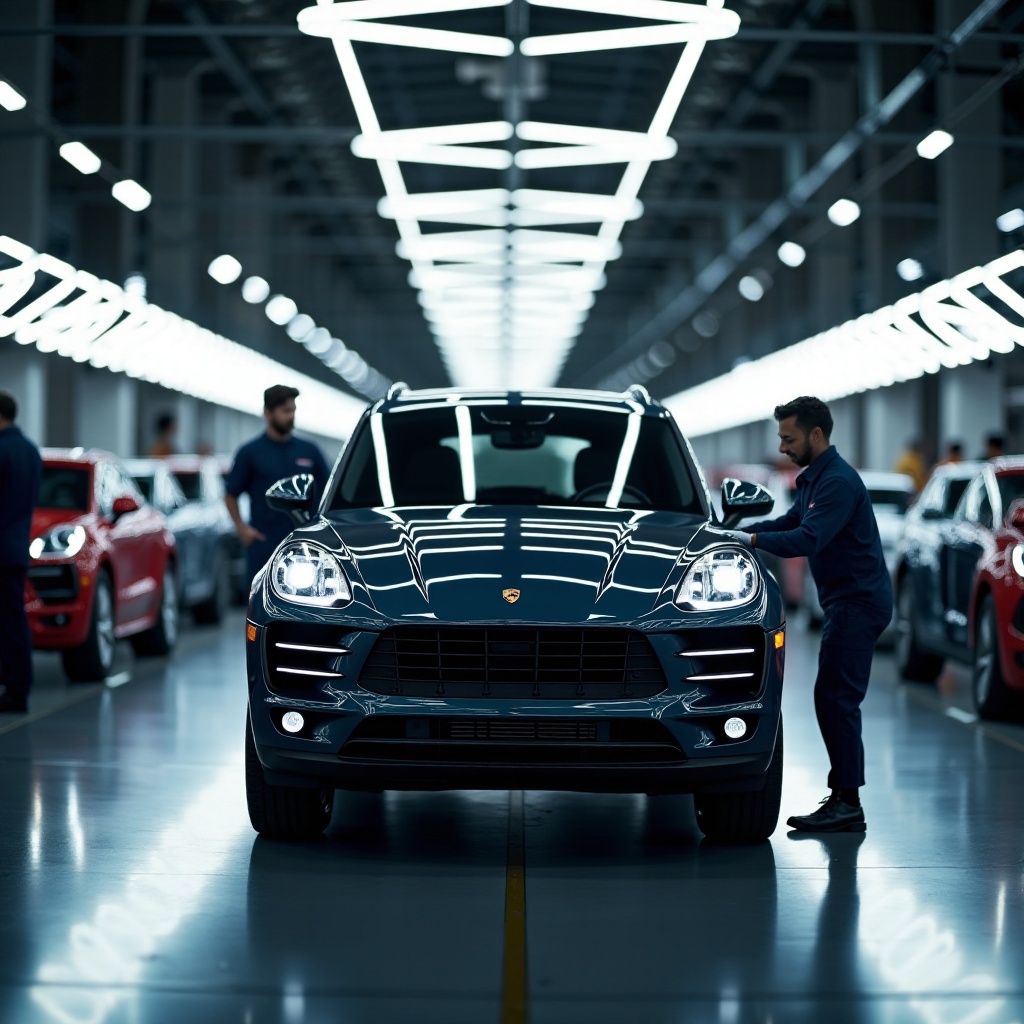Introduction
The Porsche Macan stands as one of the most popular luxury compact SUVs on the market. With its impressive design, robust performance capabilities, and exceptional driving experience, the Macan has won the hearts of many car enthusiasts. While much is known about its performance and features, there is also significant curiosity regarding where this remarkable vehicle is made. Understanding the origins of the Porsche Macan offers insights into its craftsmanship, production processes, and the brand’s commitment to quality.

Overview of the Porsche Macan
The Porsche Macan, introduced in 2014, represents the brand’s foray into the compact luxury SUV segment. Designed to offer a unique blend of power, elegance, and versatility, the Macan caters to a diverse range of driving needs. With a variety of engine options, from a 2.0-liter turbocharged inline-four to a more powerful 3.0-liter V6, the Macan provides ample choices for prospective buyers. The vehicle boasts cutting-edge technology, luxurious interiors, and the hallmark performance that Porsche enthusiasts expect. With these attributes, the Macan has not only established itself as a leader in its class but has also contributed significantly to Porsche’s global sales.

Manufacturing Locations
Porsche’s commitment to precision and excellence is evident in its production facilities, which are designed to ensure that every vehicle meets the highest standards.
Primary Production Facility
The primary production facility for the Porsche Macan is located in Leipzig, Germany. This state-of-the-art facility is renowned for its advanced automation and high-quality production processes. It is here that every Macan goes through rigorous testing and quality checks to ensure it aligns with Porsche’s stringent standards.
Historical Context
The decision to manufacture the Macan in Leipzig aligns with Porsche’s historical commitment to German engineering excellence. Since its inauguration in 2002, the Leipzig plant has evolved into one of Porsche’s most significant production sites. Originally producing the Cayenne, the facility has expanded to accommodate the growing demand for the Macan and other models, thanks to significant investments in technology and infrastructure.
Global Influence
While the Macan is primarily produced in Leipzig, Porsche’s global supply chain ensures that the vehicle incorporates the best materials and components from around the world. This global approach not only enhances the quality of the vehicles but also enables Porsche to remain competitive in the luxury car market.
The Role of Leipzig, Germany in Porsche Production
The Leipzig plant holds a special place in Porsche’s manufacturing ecosystem. Here’s an in-depth look at what makes it unique.
State-of-the-Art Facilities
The Leipzig plant is home to some of the most advanced automotive manufacturing technologies. With an emphasis on automation and precision, the facility ensures that each Macan produced meets the exacting standards set by Porsche. The production line is designed for flexibility, which allows for the efficient production of different models without compromising on quality.
Workforce Expertise
A significant factor in the success of Porsche’s Leipzig facility is its skilled workforce. The plant employs highly trained specialists who bring years of expertise and a passion for automotive excellence. This knowledgeable workforce is crucial in maintaining the high standards of quality and precision associated with the Porsche brand.
Impact on Local Economy
The Leipzig plant is not just a production hub; it also significantly impacts the local economy. The facility has created thousands of jobs, ranging from production line workers to engineers, contributing to the economic growth of the region. Additionally, Porsche’s investment in Leipzig has spurred the development of local businesses and industries, further boosting the local economy.
Porsche’s New Energy Vehicle Strategy
As the automotive industry shifts towards sustainability, Porsche is actively developing its New Energy Vehicle (NEV) strategy. This includes the gradual transition to hybrid and electric models.
Transition to Hybrid and Electric Models
Porsche’s commitment to sustainability is reflected in its rollout of hybrid and electric models. The Macan has not been left out of this transition. The company has announced plans to release an all-electric version of the Macan, adding to its lineup of hybrid and fully electric vehicles. This move signifies Porsche’s dedication to reducing its carbon footprint.
Key Innovations in NEVs
In the quest to lead the electric vehicle market, Porsche has introduced several key innovations. These include advanced battery technologies, fast-charging capabilities, and enhanced driving ranges. The upcoming electric Macan is expected to feature some of these cutting-edge technologies, providing a perfect blend of performance and environmental sustainability.
Future Outlook
The future of the Porsche Macan looks promising as the brand continues to innovate and adapt to market demands. The forthcoming all-electric Macan represents just one part of Porsche’s broader strategy to offer more environmentally friendly vehicles without compromising on performance. As the automotive landscape evolves, Porsche’s dedication to innovation and sustainability ensures that the Macan will remain a significant player in the luxury SUV market.

Sustainable Manufacturing Practices
An essential component of Porsche’s commitment to sustainability is its focus on green manufacturing practices, particularly at the Leipzig facility.
Use of Renewable Energy
One of the key aspects of sustainable manufacturing at the Leipzig plant is the use of renewable energy sources. The facility is equipped with solar panels and other renewable energy systems, significantly reducing its reliance on non-renewable energy.
Efficient Resource Management
Resource efficiency is another crucial aspect of Porsche’s sustainable manufacturing practices. The Leipzig plant employs advanced water and waste management systems to minimize environmental impact. Additionally, Porsche is continually investing in research to develop more sustainable materials and production methods.
Environmental Benefits
These sustainable practices result in multiple environmental benefits, including reduced emissions and a lower carbon footprint. By focusing on greener manufacturing processes, Porsche not only meets regulatory requirements but also aligns with its broader commitment to environmental responsibility.
Conclusion
The Porsche Macan, a symbol of luxury and performance, is meticulously crafted in Leipzig, Germany. This state-of-the-art facility embodies Porsche’s commitment to quality, innovation, and sustainability. The transition towards hybrid and electric models, together with sustainable manufacturing practices, positions Porsche at the forefront of the automotive industry’s shift towards a greener future. For car enthusiasts and environmentally conscious drivers alike, the Macan represents the perfect harmony of elegance and eco-friendliness.
Frequently Asked Questions
Is the Porsche Macan available in electric or hybrid versions?
As of now, the Porsche Macan is available with conventional internal combustion engines, but Porsche plans to introduce an all-electric version soon.
How does the Leipzig plant contribute to Porsche’s sustainability goals?
The Leipzig plant uses renewable energy and efficient resource management practices, significantly reducing the facility’s environmental impact.
What can we expect for the future of Porsche Macan production?
Future production will likely focus on sustainability, with the introduction of more hybrid and electric models and ongoing improvements in manufacturing practices.
